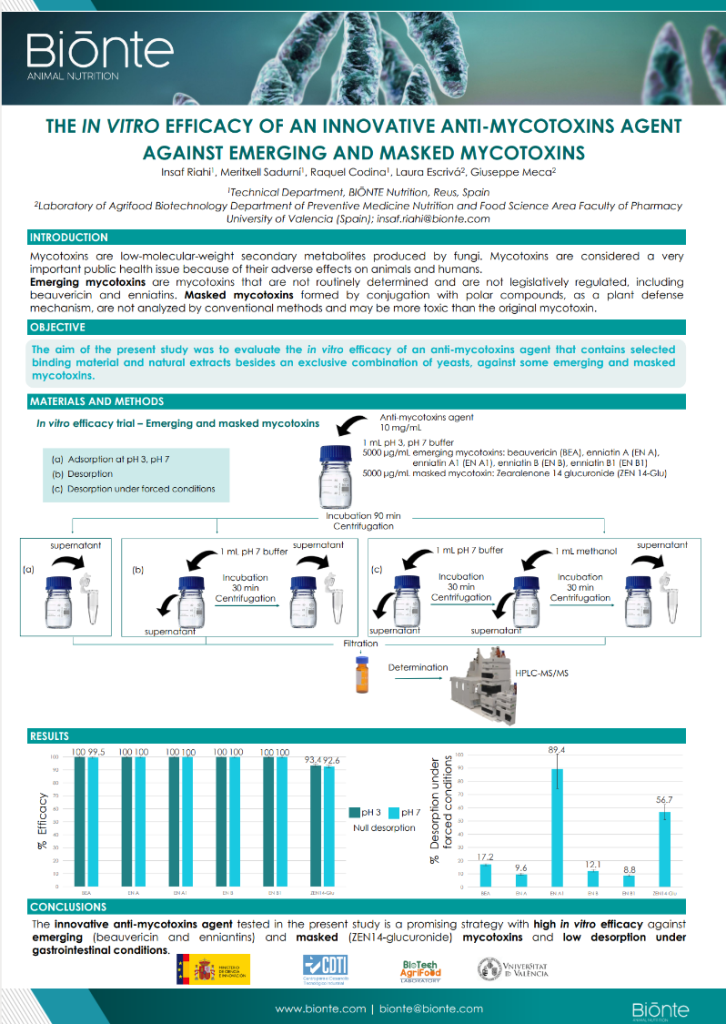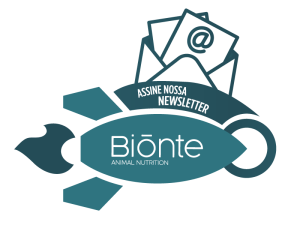INTRODUCTION
Mycotoxins are low-molecular-weight secondary metabolites produced by fungi. Mycotoxins are considered a very important public health issue because of their adverse effects on animals and humans.
Emerging mycotoxins are mycotoxins that are not routinely determined and are not legislatively regulated, including beauvericin and enniatins. Masked mycotoxins formed by conjugation with polar compounds, as a plant defense mechanism, are not analyzed by conventional methods and may be more toxic than the original mycotoxin.
OBJECTIVE
The aim of the present study was to evaluate the in vitro efficacy of an anti-mycotoxins agent that contains selected binding material and natural extracts besides an exclusive combination of yeasts, against some emerging and masked mycotoxins.
MATERIALS AND METHODS
In vitro efficacy trial – Emerging and masked mycotoxins


Anti-mycotoxins agent 10 mg/mL
1 mL pH 3, pH 7 buffer
5000 µg/mL emerging mycotoxins: beauvericin (BEA), enniatin A (EN A), enniatin A1 (EN A1), enniatin B (EN B), enniatin B1 (EN B1)
5000 µg/mL masked mycotoxin: Zearalenone 14 glucuronide (ZEN 14-Glu)

RESULTS

CONCLUSIONS
The innovative anti-mycotoxins agent tested in the present study is a promising strategy with high in vitro efficacy against emerging (beauvericin and enniantins) and masked (ZEN14-glucuronide) mycotoxins and low desorption under gastrointestinal conditions.





